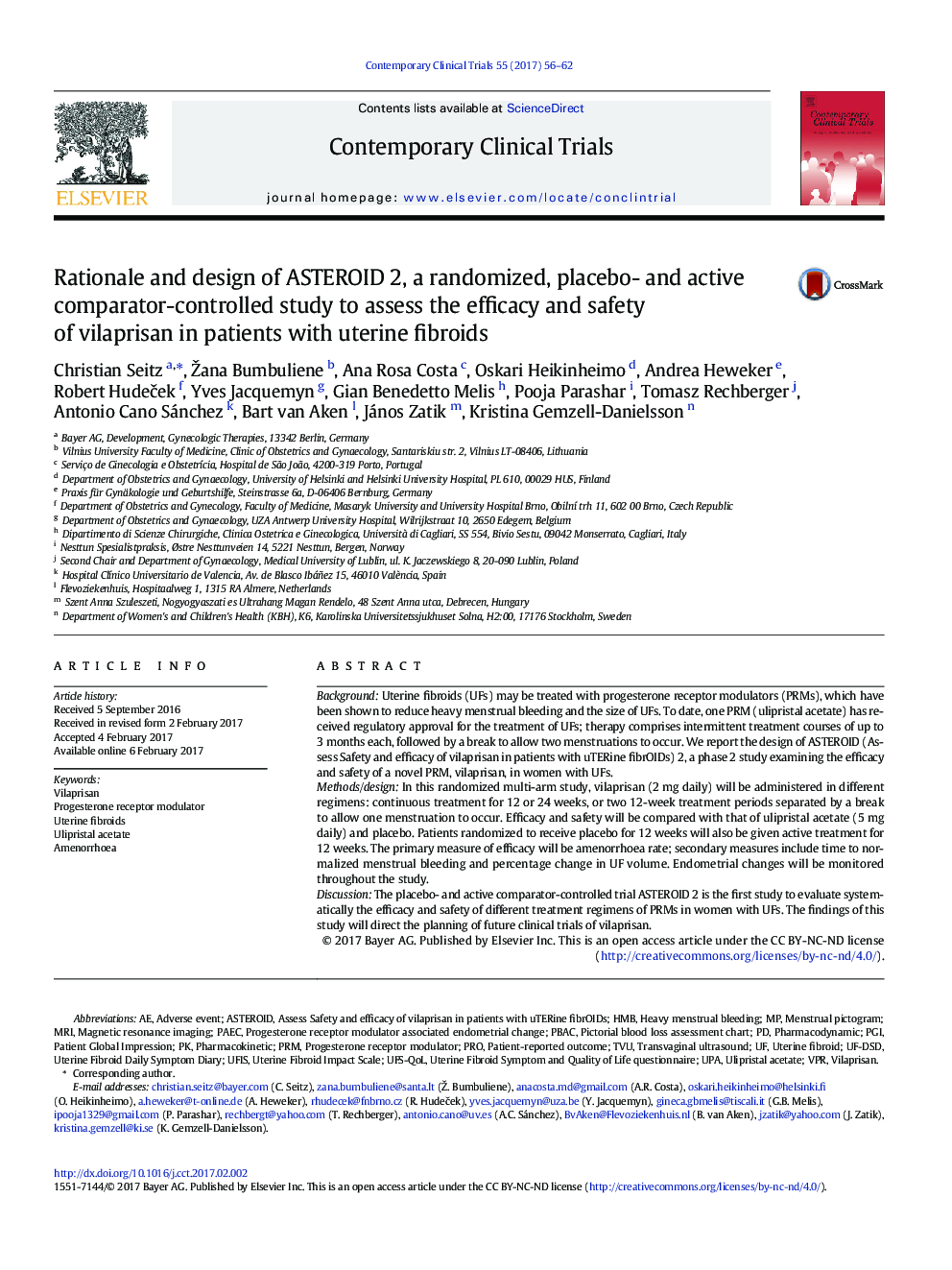| Article ID | Journal | Published Year | Pages | File Type |
|---|---|---|---|---|
| 5678654 | Contemporary Clinical Trials | 2017 | 7 Pages |
BackgroundUterine fibroids (UFs) may be treated with progesterone receptor modulators (PRMs), which have been shown to reduce heavy menstrual bleeding and the size of UFs. To date, one PRM (ulipristal acetate) has received regulatory approval for the treatment of UFs; therapy comprises intermittent treatment courses of up to 3Â months each, followed by a break to allow two menstruations to occur. We report the design of ASTEROID (Assess Safety and efficacy of vilaprisan in patients with uTERine fibrOIDs) 2, a phase 2 study examining the efficacy and safety of a novel PRM, vilaprisan, in women with UFs.Methods/designIn this randomized multi-arm study, vilaprisan (2Â mg daily) will be administered in different regimens: continuous treatment for 12 or 24Â weeks, or two 12-week treatment periods separated by a break to allow one menstruation to occur. Efficacy and safety will be compared with that of ulipristal acetate (5Â mg daily) and placebo. Patients randomized to receive placebo for 12Â weeks will also be given active treatment for 12Â weeks. The primary measure of efficacy will be amenorrhoea rate; secondary measures include time to normalized menstrual bleeding and percentage change in UF volume. Endometrial changes will be monitored throughout the study.DiscussionThe placebo- and active comparator-controlled trial ASTEROID 2 is the first study to evaluate systematically the efficacy and safety of different treatment regimens of PRMs in women with UFs. The findings of this study will direct the planning of future clinical trials of vilaprisan.
